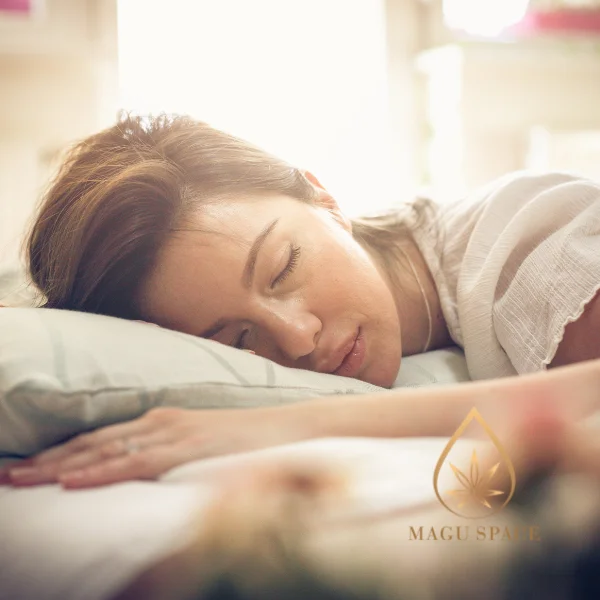The use of marijuana and CBD to treat a wide range of conditions has grown significantly in recent years. It was
CBD has been found to have health benefits, even for disorders such as insomnia and sleep problems.
What are cannabinoids and CBD?
The best known and probably the most researched cannabinoids are cannabidiol (CBD) and
tetrahydrocannabinol (THC). We know that THC is the cannabinoid that causes cannabis use to
feeling dizzy.
CBD differs from THC in that it does not produce psychoactive effects. Because Magu space CBD does not cause
psychoactive effects and may help certain conditions such as pain, anxiety and insomnia,
Magu-space CBD is gaining in popularity as a potential treatment for a wide range of diseases.
How does CBD and cannabidiol work?
How cannabinoids work is not yet fully understood. What is known from research – cannabinoids
interacts with proteins and brain cells.
Endocannabinoid system and sleep
The endocannabinoid system plays an important role in the control of bodily functions such as
Mood, appetite, sleep and circadian rhythm regulation. The endocannabinoid system contains
a network of cannabinoid receptors (in the brain and central nervous system). Two main issues have been identified
CB1 and CB2 receptors. Cannabinoids bind to these receptors and have a variety of effects. See
on how this process may affect sleep, research suggests that the cannabinoid CBD may interact with
specific receptors and may affect the sleep/wake cycle. In addition, CBD can also
reduce anxiety and pain that can interfere with restful sleep.
What does research say about CBD?
Although more studies are lacking, most of the ones that have been carried out confirm that CBD improves sleep quality.
The MEDICINES study, conducted between June 2016 and May 2018, involved 409 people with
insomnia. At baseline, the average level of insomnia among participants was 6.6 out of 10. People
could vaporise CBD, smoke it. THC potency was set at 20-30% and CBD limited to 30%. After cannabis
participants rated their symptoms at an average of 2.2, which means a reduction in anxiety of 4.5
the ball.
The results showed that the cannabinoids in cannabis reduced insomnia symptoms. However, the study
several cannabinoids have been used. It is therefore difficult to determine whether insomnia is alleviated by CBD or other
cannabinoid.
Another study, published in PERMANENT JOURNAL, involved 72 people experiencing high
anxiety and sleep disorders. Participants rated anxiety and sleep at the start of the study and during the first
tracking month. The study participants were given 25 mg of CBD in the form of capsules. Those who are most often
had sleep problems and took the dose in the evening. Participants whose main complaint was anxiety,
CBD in the morning. After the first month, anxiety scores dropped for 79% of people. Sleep indicators
improved for 66% of participants, indicating less sleep disturbance. CBD for many
reduced sleep disturbances. However, although the reduction in anxiety symptoms remained constant throughout
During the study period, sleep quality scores fluctuated over time.
Several smaller studies have also confirmed the use of CBD oil to improve sleep. For example,
a case study of a 10-year-old girl with post-traumatic stress disorder and
complaining of poor sleep, was treated CBD. Bedtime injected with 25 mg of CBD
complements. An additional dose of 6-12 mg of CBD is sprayed under the tongue during the day. Sleep quantity and quality
Gradual improvement was observed after five months, with a significant result.
Evidence abounds to support the theory that CBD has health benefits. Although more needs to be done
Studies already conducted suggest that taking CBD can reduce insomnia symptoms and lead to better quality
get some sleep. When dealing with sleep problems, the best first step is to consult
doctor to find out more.

